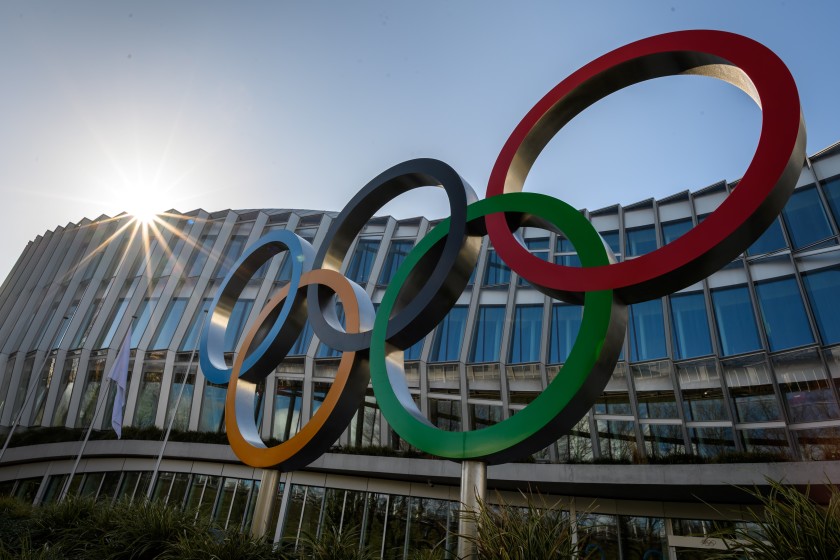Wolk: Peacock Finds Silver Linings in Postponed Olympics Playbook
While the one-year of the streaming service’s biggest launch vehicle is a bummer, but the re-sked offers up opportunities, as well

The smarter way to stay on top of the streaming and OTT industry. Sign up below.
You are now subscribed
Your newsletter sign-up was successful
Comcast NBCU had been counting on the buzz from the Olympics to help get their new streaming service, Peacock, off to a rollicking start. The assumption was that lots of people would subscribe to watch the Games and then stick around afterwards, at which point they’d be bedazzled by all of the great programming and library content on Peacock and decide to become subscribers.
Only that’s not going to happen thanks to a wise decision by the International Olympic Committee to postpone the games until next year.

This could be a disaster for Comcast, which, if nothing else, has sold over a billion dollars worth of advertising already, and it’s clearly not their ideal outcome.
Fortunately, according the the Washington Post, they were able to exert some influence on the decision to move the Games to next summer, rather than have them shifted to the fall.
There are three big reasons I’m thinking this is going to be a not super awful move for them. Or at least a “making lemonade out of lemons” move.
2021 Ad Budgets
While it may have been possible to shift some of that summer budget to a fall Olympics, many brands had likely already made other commitments for the fall and would not have wanted to be in a situation where they risked over-saturating the market with advertising and thus pulled back on their Olympic commitment.
The smarter way to stay on top of the streaming and OTT industry. Sign up below.
Pulling back on ad spending is also a far more likely occurrence in Fall 2020 too, given the likely recession. Consumers will be wary of spending money during uncertain times, and brands will be wary of spending money to advertise them. There’s a much better chance of all that being cleaned up by next summer or at least having it somewhat under control.
Peacock Is New
Peacock is a due to launch next month, which means there wasn’t a whole lot of time to work out the kinks before they went full blast on the Olympics. Tech kinks in particular. Streaming live events is far more difficult than streaming pre-recorded ones and so this would have been another stressor, another thing that could have gone very wrong.
With the shift, Peacock now has a full year to iron out all the kinks and make sure that the tech is working right, that the various streams work correctly on Peacock as well as on NBC and that they can impress viewers with their ability to deliver.
The Coming Content Drought
Right now we are in a content glut—there are far too many series out there for most people to watch and not enough time to watch them all in. As a result, some very good series may sink below the waves, so to speak, because they were not marketed correctly or because they came out at the same time as something that got more buzz.
If there’s an upside to the stay-at-home orders most of us now find ourselves under, it’s that we now have had time to catch up on all those shows we did not have time to watch when they first came out.
That’s great, and between that and what the various programmers already have in the can, there will be enough to watch for many months.
But due to the coronavirus pandemic, most (if not all) shows have shut down production and it will be a while before they start back up.
That means there will be a content drought, probably starting sometime next year, a period when all of the big budget prestige shows are filming and/or editing new episodes, when there’s just not a whole lot on the air.
Add to this the fact that summer is traditionally the time when the industry slows down under the assumption that people are outside recreating, not sitting at home watching TV.
So the Olympics will be a welcome break, something new to watch in the middle of the content drought, something that will fill many, many hours worth of viewing time, given that every event will be available via Peacock.
That also gives Peacock an opportunity to promote its new shows, the ones that will be premiering in fall of 2021 at a time when viewers aren’t already feeling overwhelmed by the current amount of programming they haven’t yet had a chance to watch, or by the sheer number services showing said programming they will have to deal with.
Consumers will have had a full year to get used to the fact that there are so many Flixes, so many different ways to spend their TV dollars.
All of which is a polite way of saying that while I have no doubt that Comcast would have preferred for the Olympics to have happened as planned this year (assuming the absence of a global pandemic), things may not turn out to be as catastrophic for them as they may seem at first glance.
Here’s hoping.
Alan Wolk is the co-founder and lead analyst for media consultancy TV[R]EV

